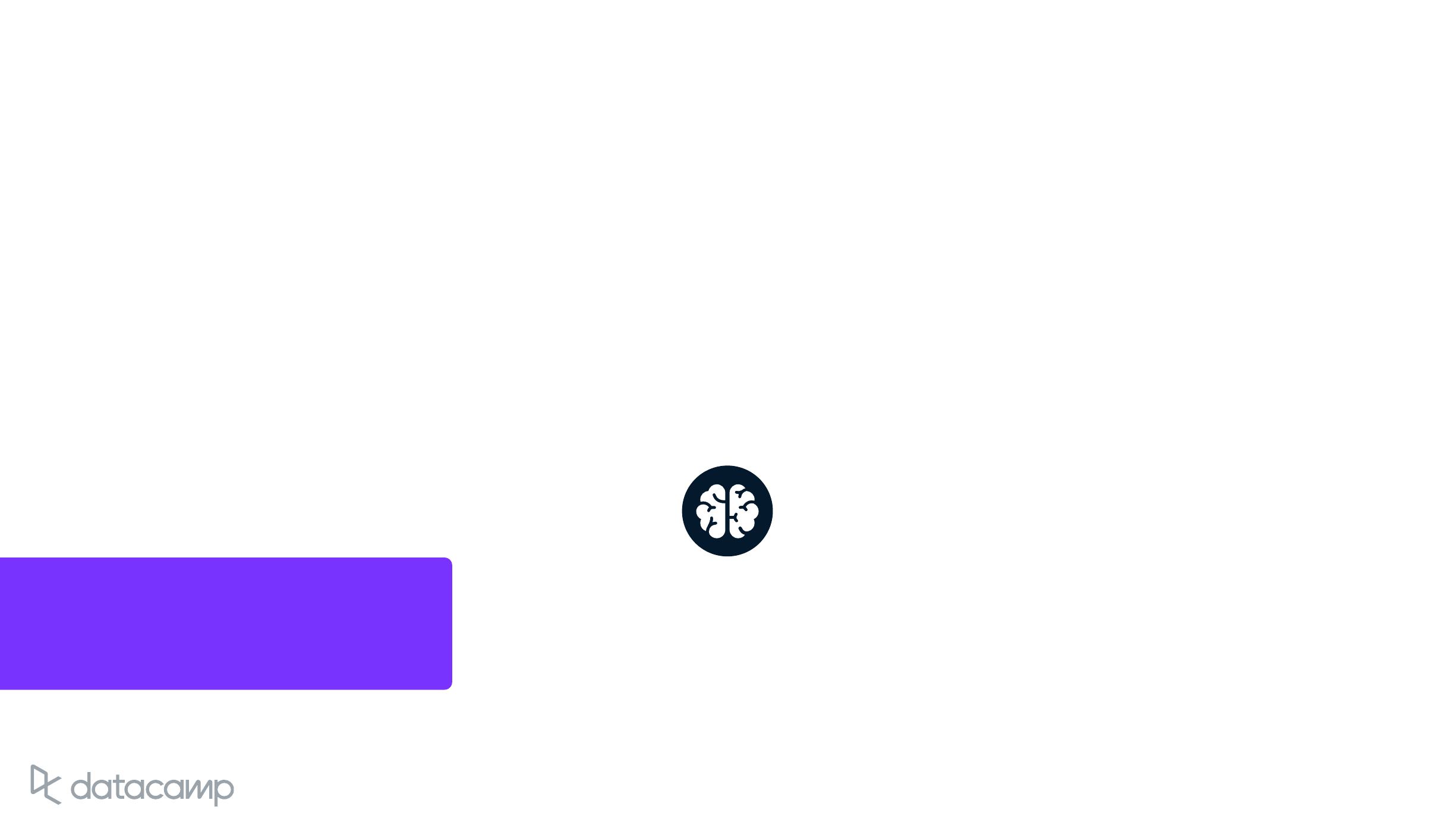
What is functional
programming?
P R O G R A M M I N G PA R A D I G M C O N C E P T S
Eleanor Thomas
Senior Data Analytics Engineer

PROGRAMMING PARADIGM CONCEPTS
What is functional programming?
Functional programming: a programming paradigm involving functions, specifically
pure
functions
Pure functions: a process that takes input values, produces output values based only on the
input values, and does not do anything else
Separation of responsibilities is achieved in functional programming via functions

PROGRAMMING PARADIGM CONCEPTS
What is a pure function?
Concept of pure function in functional
programming comes from mathematics
Pure functions only
look at input
and only
produce output
Pure functions have no "side effects"
No side effects means:
No influence on other variables in the
program
No writing to files
No saving information to a database

PROGRAMMING PARADIGM CONCEPTS
Example of a pure function
Pure function
def pure_sum(x, y):
output = x + y
return output
Not a pure function
def not_pure_sum(x, y):
output = x + y
print(output)
return output

PROGRAMMING PARADIGM CONCEPTS
Benefits of pure functions
Pure functions are easier to understand and
debug
Testing of pure functions is easier
Output for a given input is entirely
predictable
Similar to mathematical functions: 5
squared is always 25

Let's practice!
P R O G R A M M I N G PA R A D I G M C O N C E P T S

When is functional
programming used?
P R O G R A M M I N G PA R A D I G M C O N C E P T S
Eleanor Thomas
Senior Data Analytics Engineer

PROGRAMMING PARADIGM CONCEPTS
Applications of functional programming
Machine learning, deep learning, artificial intelligence
Analyzing and processing large datasets
Data engineering applications (e.g. in Scala and Clojure)

PROGRAMMING PARADIGM CONCEPTS
Example of functional programming
def process_data(raw_data):
processed_data = raw_data
... further processing steps here! ...
return processed_data
Function takes input data stored in raw_data
Function creates new variable for output data, called processed_data
Function performs some consistent set of steps to further process the data
Function returns processed_data

PROGRAMMING PARADIGM CONCEPTS
Pros and cons of functional programming
PROS
Easier to read and debug pure functions
Easier to test pure functions
Fewer unexpected consequences in the
code
Pure functions are highly reusable from
project to project
Can run different functions in parallel to
make code faster
CONS
Tricky to get used to thinking in this
paradigm, can feel limiting: "side effects"
(writing to files, etc.) are most of what we
want
to do in programming
Fewer experts, tools, frameworks exist for
functional programming
Steeper learning curve and fewer
educational resources
Larger memory usage limits applications

PROGRAMMING PARADIGM CONCEPTS
Functional programming and declarative programming
Functional programming is a type of declarative programming
Declarative programming: tell the computer
what
to do, not
how
to do it
Functional programming is just
one type
of declarative programming
Programmer tells the computer what functions to execute, not the exact steps to follow

Let's practice!
P R O G R A M M I N G PA R A D I G M C O N C E P T S

Functional
programming in
action
P R O G R A M M I N G PA R A D I G M C O N C E P T S
Eleanor Thomas
Senior Data Analytics Engineer

PROGRAMMING PARADIGM CONCEPTS
Functional programming in action
Three examples of pure functions
Key difference between a
pure
function and a general Python function:
no side effects
Pure functions can call other pure functions and remain pure

PROGRAMMING PARADIGM CONCEPTS
Example 1 - Writing a pure function
def square_list(input_list):
new_list = []
for item in input_list:
new_item = item ** 2
new_list.append(new_item)
return new_list
First create a new, empty list
Go through each item in the input list
Square it
Append it to new list
Return new list

PROGRAMMING PARADIGM CONCEPTS
Example 2 - Correcting an "impure" function
sample_mean = 10
scale_factor = 2
def scale_list(input_list):
new_list = []
for item in input_list:
new_item = (item - sample_mean) / scale_factor
new_list.append(new_item)
return new_list
Depends on variables outside of the function body
Not a pure function

PROGRAMMING PARADIGM CONCEPTS
Example 2 - "Impure" function corrected
def scale_list(input_list, sample_mean, scale_factor):
new_list = []
for item in input_list:
new_item = (item - sample_mean) / scale_factor
new_list.append(new_item)
return new_list
Variables sample_mean and scale_factor have become input parameters for the function
Function is now "pure"

PROGRAMMING PARADIGM CONCEPTS
Example 3 - Combining pure functions
def scale_value(value, sample_mean, scale_factor):
scaled_value = (value - sample_mean) / scale_factor
return scaled_value
def scale_list(input_list, sample_mean, scale_factor):
new_list = []
for item in input_list:
new_item = scale_value(item, sample_mean, scale_factor)
new_list.append(new_item)
return new_list

Let's practice!
P R O G R A M M I N G PA R A D I G M C O N C E P T S

Recursion in
Functional
Programming
P R O G R A M M I N G PA R A D I G M C O N C E P T S
Eleanor Thomas
Senior Data Analytics Engineer

PROGRAMMING PARADIGM CONCEPTS
What is recursion?
Recursive function
: a function that calls itself
Must contain a termination condition, or base case
Also contains the recursive call to itself with modified input
0 | def my_recursive_function(input_value):
1 | # base case
2 | if base_case_condition:
3 | return base_case_output_value
4 | # recursive call
5 | else:
6 | return my_recursive_function(modified_input_value) + some_modification

PROGRAMMING PARADIGM CONCEPTS
Why use recursion?
Some problems are more straightforward when defined recursively
Fibonacci numbers:
0, 1, ...
0, 1, 1, ...
0, 1, 1, 2, ...
0, 1, 1, 2, 3, ...

PROGRAMMING PARADIGM CONCEPTS
Some more examples of recursion
Searching through a file system

PROGRAMMING PARADIGM CONCEPTS
Some more examples of recursion
Searching through a file system
Certain sort algorithms, such as Merge Sort

PROGRAMMING PARADIGM CONCEPTS
Some more examples of recursion
Searching through a file system
Certain sort algorithms, such as Merge Sort
Various data structures are defined recursively

PROGRAMMING PARADIGM CONCEPTS
Recursion versus iteration
Every recursive function can also be written iteratively
Iterative function uses a loop rather than a recursive call
def iterative_factorial(n):
result = 1
for i in range(1, n + 1):
result = result * i
return result

Let's practice!
P R O G R A M M I N G PA R A D I G M C O N C E P T S
